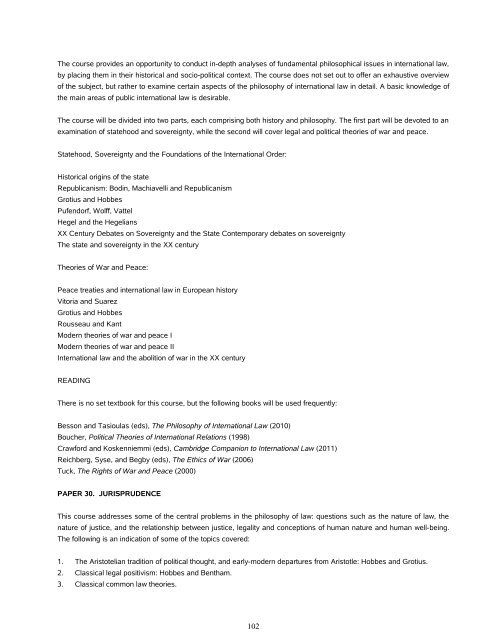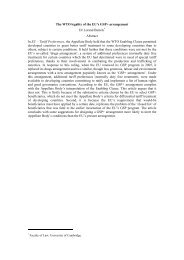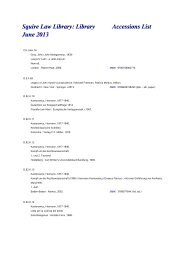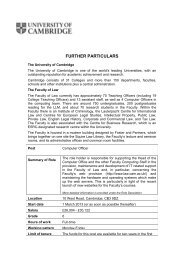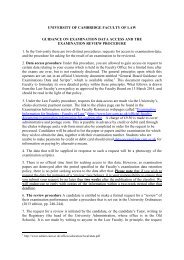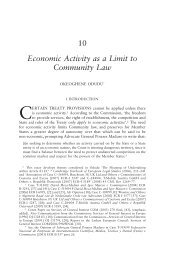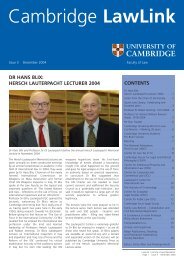Contents - Faculty of Law - University of Cambridge
Contents - Faculty of Law - University of Cambridge
Contents - Faculty of Law - University of Cambridge
You also want an ePaper? Increase the reach of your titles
YUMPU automatically turns print PDFs into web optimized ePapers that Google loves.
The course provides an opportunity to conduct in-depth analyses <strong>of</strong> fundamental philosophical issues in international law,by placing them in their historical and socio-political context. The course does not set out to <strong>of</strong>fer an exhaustive overview<strong>of</strong> the subject, but rather to examine certain aspects <strong>of</strong> the philosophy <strong>of</strong> international law in detail. A basic knowledge <strong>of</strong>the main areas <strong>of</strong> public international law is desirable.The course will be divided into two parts, each comprising both history and philosophy. The first part will be devoted to anexamination <strong>of</strong> statehood and sovereignty, while the second will cover legal and political theories <strong>of</strong> war and peace.Statehood, Sovereignty and the Foundations <strong>of</strong> the International Order:Historical origins <strong>of</strong> the stateRepublicanism: Bodin, Machiavelli and RepublicanismGrotius and HobbesPufendorf, Wolff, VattelHegel and the HegeliansXX Century Debates on Sovereignty and the State Contemporary debates on sovereigntyThe state and sovereignty in the XX centuryTheories <strong>of</strong> War and Peace:Peace treaties and international law in European historyVitoria and SuarezGrotius and HobbesRousseau and KantModern theories <strong>of</strong> war and peace IModern theories <strong>of</strong> war and peace IIInternational law and the abolition <strong>of</strong> war in the XX centuryREADINGThere is no set textbook for this course, but the following books will be used frequently:Besson and Tasioulas (eds), The Philosophy <strong>of</strong> International <strong>Law</strong> (2010)Boucher, Political Theories <strong>of</strong> International Relations (1998)Crawford and Koskenniemmi (eds), <strong>Cambridge</strong> Companion to International <strong>Law</strong> (2011)Reichberg, Syse, and Begby (eds), The Ethics <strong>of</strong> War (2006)Tuck, The Rights <strong>of</strong> War and Peace (2000)PAPER 30. JURISPRUDENCEThis course addresses some <strong>of</strong> the central problems in the philosophy <strong>of</strong> law: questions such as the nature <strong>of</strong> law, thenature <strong>of</strong> justice, and the relationship between justice, legality and conceptions <strong>of</strong> human nature and human well-being.The following is an indication <strong>of</strong> some <strong>of</strong> the topics covered:1. The Aristotelian tradition <strong>of</strong> political thought, and early-modern departures from Aristotle: Hobbes and Grotius.2. Classical legal positivism: Hobbes and Bentham.3. Classical common law theories.102


